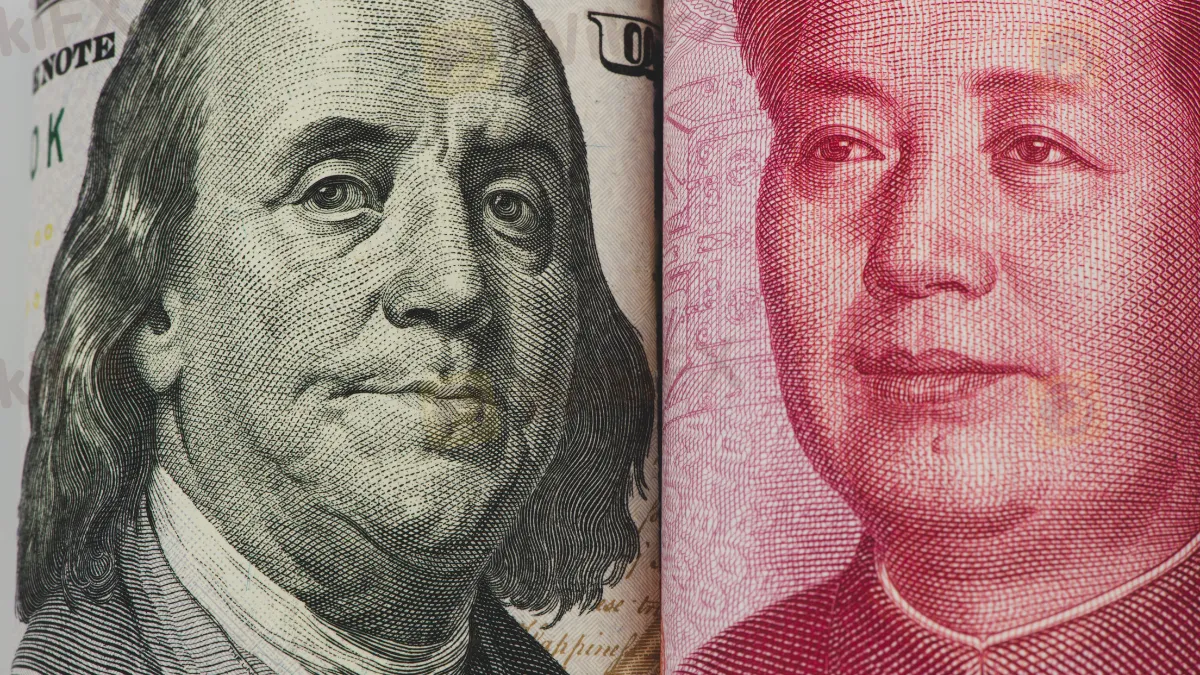简体中文
繁體中文
English
Pусский
日本語
ภาษาไทย
Tiếng Việt
Bahasa Indonesia
Español
हिन्दी
Filippiiniläinen
Français
Deutsch
Português
Türkçe
한국어
العربية
China's New Measures Aim to Stabilize Yuan Against Dollar
Abstract:China's new measures to stabilize the Yuan against the US dollar aim to counter US monetary policy uncertainties and strengthen the currency in the second half of the year.

According to experts, China is planning to adopt fresh steps to stabilize the yuan versus the US dollar, addressing persistent concerns about US monetary policy and strengthening the Chinese currency in the second half of the year.
This forecast follows the yuan's recent slide to its lowest level versus the US dollar since November, which was recorded in both onshore and offshore trade on Wednesday.
The offshore yuan fell to 7.3115 versus the US dollar in the morning, breaching the crucial 7.31 level, while the onshore yuan finished at 7.2734 around 16:30, down 20 basis points from the previous day.
The yuan has been under pressure since early June, owing to worries that the US Federal Reserve may postpone interest rate decreases. The dollar index increased 1.16 percent in June to 105.84, before falling slightly to 105.63 on Wednesday afternoon.
Liu Chunsheng, an associate professor at the Central University of Finance and Economics School of International Trade and Economics, believes the yuan's recent weakening is due in part to uncertainty about China's internal economic recovery.
Looking forward, Liu expects the yuan to range between 7.1 and 7.3 percent versus the dollar, with the Fed perhaps keeping key interest rates as high as 5.25 to 5.5 percent for the rest of the year.

On Tuesday, Federal Reserve Chair Jerome Powell said that, although recent statistics indicate that US inflation is on the decline, the Fed needs more proof before contemplating rate decreases.
To preserve yuan stability, Liu believes officials could cut the foreign currency reserve requirement ratio, expanding onshore dollar liquidity and enhancing expectation management.
He also underlined the significance of more aggressive fiscal and monetary policy in maintaining economic momentum. “Significant fluctuations in economic growth could impact not only the yuan but also the stock and bond markets,” according to Liu.
The People's Bank of China (PBOC) has reaffirmed its commitment to preserving the yuan's overall stability via comprehensive measures while resolutely guarding against the possibility of exchange rate overshoot.
According to Jerry Chen, an analyst at GAIN Capital, the PBOC's move on Monday to borrow Chinese government bonds from main dealers indicates its policy purpose to stabilize the yuan. Selling these bonds may assist avoid a sharp drop in Chinese government bond rates.
“We anticipate the central bank will continue to manage currency challenges in a controlled manner, indicating exchange rate stability via the yuan central parity rate. ”It may also guide market expectations by issuing offshore central bank bills, Chen said.
The Chinese yuan has held up well versus a basket of foreign currencies. The CFETS RMB Index, which analyzes the yuan's exchange rate against a basket of currencies from China's trading partners, increased to 100.04 on Friday from 99.79 at the end of May.
You may also access the daily news here.

Disclaimer:
The views in this article only represent the author's personal views, and do not constitute investment advice on this platform. This platform does not guarantee the accuracy, completeness and timeliness of the information in the article, and will not be liable for any loss caused by the use of or reliance on the information in the article.
Read more

Bank Negara Malaysia Flags 12 New Companies for Unauthorised Activity
Bank Negara Malaysia (BNM) has updated its Financial Consumer Alert List (FCA List) by adding 12 more entities, reinforcing its efforts to warn the public against unregulated financial schemes. Check if your broker made the list!

TradingView Brings Live Market Charts to Telegram Users with New Mini App
TradingView has launched a mini app on Telegram, making it easier for users to track market trends, check price movements, and share charts.

Georgia Man Charged in Danbury Kidnapping and Crypto Extortion Plot
Georgia man James Schwab charged in Danbury kidnapping tied to $230M crypto heist. Plot targeted couple for ransom after Miami altercation with son.

Bybit Shuts Down NFT Marketplace Amid Crypto Market Downturn
Bybit announces the closure of its NFT marketplace, citing efforts to streamline offerings. Discover the latest trends in the declining NFT market and its shift to utility-based growth.
WikiFX Broker
Latest News
Exposing the Top 5 Scam Brokers of March 2025: A Closer Look by WikiFX
Gold Prices Climb Again – Have Investors Seized the Opportunity?
Webull Launches SMSF Investment Platform with Zero Fees
Australian Regulator Warns of Money Laundering and Fraud Risks in Crypto ATMs
The Withdrawal Trap: How Scam Brokers Lure Victims into Paying More
FCA to Investors: Think Twice Before Trusting These Brokers
Trump\s tariffs: How could they affect the UK and your money
Trump gambles it all on global tariffs he\s wanted for decades
TradingView Brings Live Market Charts to Telegram Users with New Mini App
Trump tariffs: How will India navigate a world on the brink of a trade war?
Currency Calculator







